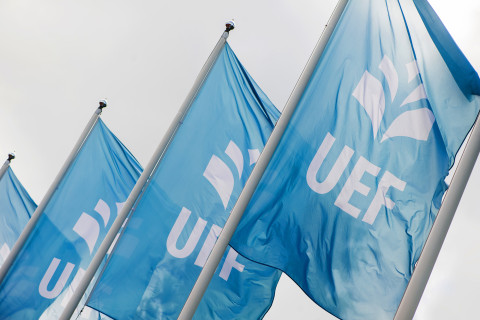The United Nations Development Programme (UNDP) has been implementing the Aid for Trade Programme in the Kyrgyz Republic and Tajikistan with the support of the Ministry for Foreign Affairs of Finland (MFA). At the moment, the programme is in its fourth phase, with funding of 4.8 million euros from the MFA. During the programme implementation, a need has arisen to pay attention to international quality and safety standards in the food sector.
The University of Eastern Finland (UEF) is participating in the programme by training Kyrgyz food safety and quality managers and organisation leaders in food sector businesses, food technology university representatives, and food safety and quality consultants. Training has focused on EU food legislation and food safety, and on quality assurance training in dairy, meat, vegetable, fruit and berry industries.
“A major result of the project has been networking among the participants. They have gained a common view on the components required to ensure food quality and safety,” says Global Development Manager, Roseanna Avento
“Investing in food quality and safety through proper infrastructure, strong institutions and training will help the Kyrgyz Republic to advance her food sector and achieve the UN’s Sustainability Development Goals on many fronts.”
During the project, it has been observed that the Kyrgyz Republic’s and Finland’s food safety and quality related operations differ greatly already from the point of primary production. Finland’s food system is well developed due to the EU and national legislation and good practices. Operations are responsible, guaranteeing consumers clean, environmentally friendly and safe food products.
“The system in the Kyrgyz Republic is very variable. Within agriculture, the Kyrgyz Republic faces challenges with many animal and plant diseases, and the abilities of food sector enterprises to monitor the microbiological quality of their products and possible chemical contamination are limited. Traceability of food products is often questionable and the notion of traceability from farm to fork is only slowly being implemented. A lack of accredited food laboratories is also a problem,” Avento says.
There has been an interest in Finland’s salmonella-free programme and controlled operational environments, through which a low prevalence of animal diseases has been guaranteed, and observance of withdrawal periods when animals have been treated with antibiotics, for example.
“The training participants from the Kyrgyz Republic have listened with interest to the current discussion in Finland on lowering of consumption of dairy and meat products. They have also found it interesting that our food production has one of smallest carbon footprints in the world,” Avento explains.
During the training, the participants from the Kyrgyz Republic have participated in the official hygiene test given by the Finnish Food Authority and will be awarded the Finnish hygiene passport. The hygiene passport has been of great interest and the training participants have seen a need to develop a similar system in the Kyrgyz Republic.
“We have found new collaboration opportunities with Finnish companies, for example in product development and increasing the shelf life of food products. It was also valuable to see how traceability of food products has been implemented. This is still challenging in the Kyrgyz Republic, but we can already work with primary producers and for instance arrange training for farmers, and also make investments together,” say Quality Manager Olga Stan from LLC Semeinye Traditsii and Production Manager Almaz Orozov from LLC Kantsut.
“The sensory evaluation laboratory at the University of Eastern Finland was also very interesting and we can build similar in the Kyrgyz Republic, but it will require further training. Investments are, however, possible,” says Production Manager Almaz Bekturganov from LLC Toiboss.
“The Finnish Oiva-system is wonderful because it openly informs the results of evaluations carried out by Finnish food authorities on food businesses. The results are even on the internet for everyone to see. Elements of this could be well implemented in the Kyrgyz Republic,” they say.
For further information, please contact: Global Development Manager Roseanna Avento, tel. + 358 40 355 3828, roseanna.avento (a) uef.fi


